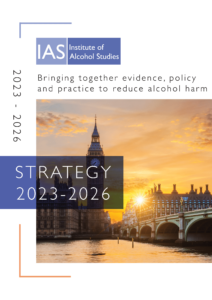View this report

Our challenge for 2023-2026: Addressing alcohol-related inequalities
Alcohol harm continues to adversely affect families, communities and society at large. In the wake of the pandemic, alcohol-related deaths have increased substantially and are currently at an all-time high. Our report The COVID Hangover: Addressing the long-term health impacts of changes in consumption during the pandemic estimates that if current drinking trends persist, there will be up to 9,914 additional premature deaths in England by 2035, costing the NHS up to £1.2bn.
The harm caused by alcohol is not equally experienced across society. Evidence consistently shows that the most deprived communities consume less alcohol yet suffer higher rates of alcohol-related health and social problems compared to the least deprived. In England, alcohol mortality rates in the most deprived areas are more than double those reported in the least. Our report Inequalities in victimisation: Alcohol, violence and anti-social behaviour found alcohol-related violence victimisation is disproportionately clustered in the lowest socioeconomic groups, with the most disadvantaged groups experiencing up to five times the prevalence of alcohol-related domestic and acquaintance violence than the most advantaged group. Research in Scotland has also found a relationship between off-licence density and crime, with deprived areas more likely to be affected.
Policies designed to reduce alcohol harm have been shown to benefit lower income groups to a greater extent than higher income groups. For example, minimum unit pricing is associated with a reduction in alcohol-specific deaths and hospitalisations in the four most socioeconomically deprived deciles in Scotland.
However, despite clear evidence to support policies that will tackle alcohol-related inequalities, significant barriers exist to their introduction. The influence of commercial interests in UK policymaking, especially linked to multinational alcohol producers, creates a major imbalance of power between public health and private profit. Evidence shows the alcohol industry is highly strategic, rhetorically sophisticated and well organised in influencing national policymaking.
Alcohol harm places significant financial strain on the UK, with estimated total societal costs between £27-£52bn year. At a time when public finances are stretched, people from more deprived communities are at greater risk of cuts to funding for public services, so now is more important than ever to ensure avoidable costs to our economy are minimised.

View this report
